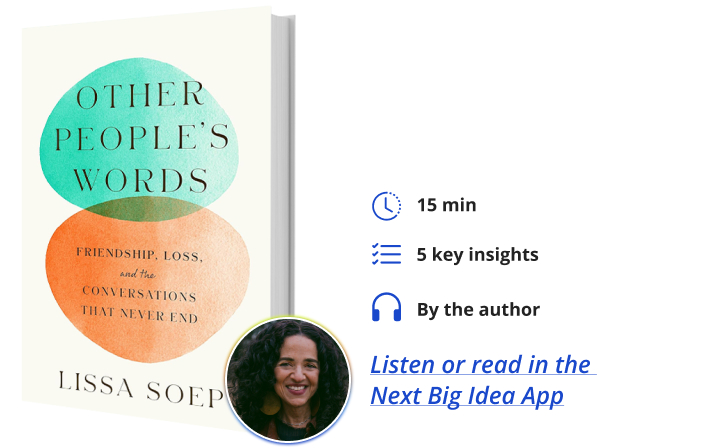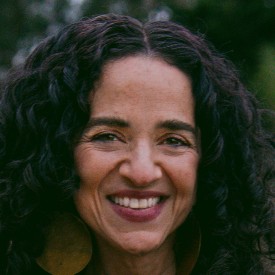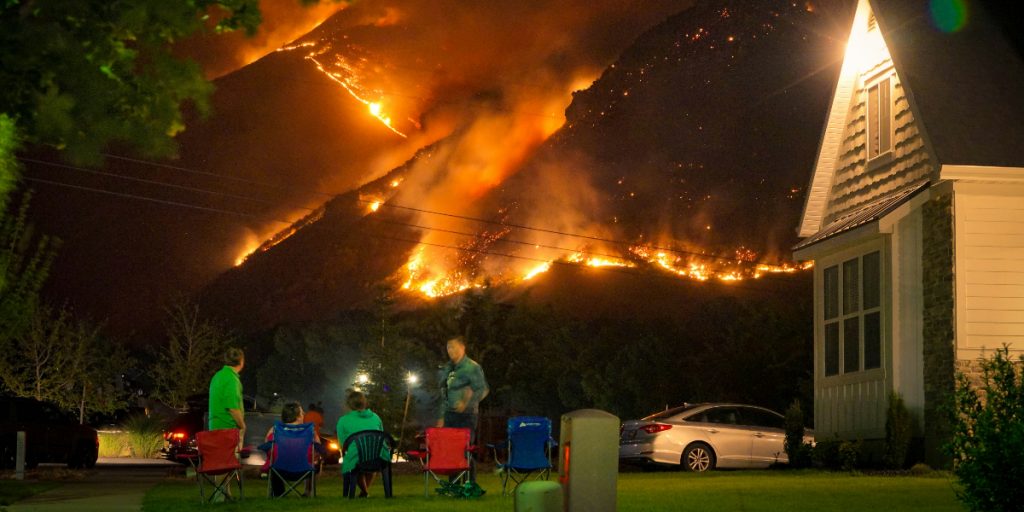Lissa Soep is a senior editor for audio at Vox Media, as well as senior scholar-in-residence and special projects producer at YR Media.
Below, Lissa shares five key insights from her new book, Other People’s Words: Friendship, Loss, and the Conversations That Never End. Listen to the audio version—read by Lissa herself—in the Next Big Idea App.

1. After loved ones die, their voices carry on through those left behind.
Two great friends of mine, Christine and Jonnie, died around the same time about ten years ago. Christine exited slowly, after a long and mysterious illness. Jonnie was gone in an instant, killed by a boat on an afternoon swim. Reeling from these deaths, I longed to keep hearing my friends’ voices. I hoarded and cherished the words they’d left behind—postcards, texts, and other artifacts of our lives together, stashed on my phone or in the back of a drawer.
Soon, I noticed that my conversations with Christine and Jonnie hadn’t stopped. They’d intensified and taken on new qualities: absurd, revelatory, depleted—sometimes all at once. The conversations continued because now I carried my friends’ remembered and imagined voices within my own.
2. My voice overflows with the language of others, and yours does too.
On my last visit with Christine, she had only a handful of words left: yes, no, the name of her cat, the color of her lover’s eyes. And yet, within the quiet, I felt an inexplicably strong presence of her voice and poetry. It was so strange. My mind went to an unexpected place: a 20th-century philosopher of language I’d studied in grad school, Mikhail Bakhtin.
“Our speech is filled to overflowing with other people’s words,” Bakhtin argued. He was obsessed with what he called “conversations of the most intense kind,” meaning dialogues not between people but within people. One person talks, but their words engage with something vital beyond their limits: the imagined voice of another speaker, who enters the dialogue as a hidden, hovering interlocutor. Sometimes, as a haunting.
“Double-voicing can happen when you’re talking to someone else or inside your own head.”
Bakhtin used the term “double voicing” to name this human capacity to speak as more than one person at a time. It’s not unlike when a singer covers another artist’s song, and you experience both of their voices simultaneously, a devotional chord. Double-voicing can happen when you’re talking to someone else or inside your own head. Like when my kids were little and I tried, for the third time, to get them out of bed—“time to wake up, honeys!”—and stood in their bedroom doorway, startled by the sound of my mother’s voice in the sing-songy phrase that spilled from my mouth. Or when I was sweeping up one afternoon and caught myself embroiled in an imagined argument, speaking both sets of angry lines that were suddenly more real than the floorboards beneath my feet. Or when I heard our couples therapist, verbatim, in something my husband said and noticed that I was doing the same thing: interlacing the therapist’s voice with my own in the triangulated vocabulary of a relationship in need of repair.
Other people’s words are a constant presence within our voices—a vibration that’s always there. In times of grief and longing, these voices can be lifelines to those we’ve lost. Inside our words, we are never without companions.
3. Language is a portal to time travel.
About a year after Jonnie died, his wife Emily went to a café with a friend. They were talking, catching up on how her kids were doing, and then the friend said there was something she’d been meaning to ask.
“How’s Jonnie?”
Emily put down her coffee cup. She couldn’t believe the friend asked her that question, knew to ask it the way she did. “Thank you so much,” Emily said. Finally, someone understood something essential about her grief.
The magic of the friend’s question was in its tense. How is Jonnie? That one little word suspended an everlasting present for Emily and Jonnie, impossible and consoling at once. When Emily told me this story, it reminded me of the sensation I had listening to Jonnie’s voicemails. Emily had saved them on her laptop after he died, knowing that she would need these and every other recording she could find, to form a lifetime of conversations out of any voice of his she had left. Every message started the same way. “Hey Sugar, it’s me.” “Hey Sugar, just calling to check in on you.” “Hey Sugar, sorry I’m not there.” When Emily played the voicemails for me a couple of years after Jonnie died, I heard them as double-voiced. They held the Jonnie of before, when he was going about his life, and the Jonnie of now, a presence that stretches beyond his death—a devotional chord. Dialogue rippling through a single voice has this shapeshifting power to cross barriers of time and loss, if only for a moment.
4. The concept of other people’s words reveals how technology like AI is—and isn’t—reshaping language as we know it.
All speech, not only that which has been generated by artificial intelligence, is teeming with voices, past and present, unruly and inexhaustible. It is not, after all, from the dictionary that we find language, and it doesn’t come from within ourselves either. Words come to us via other people. “Every word is half someone else’s,” I learned from Bakhtin. We pick up language, try it out, see what it can do, make it our own. And then we send words back out into a flow of dialogue that shapes what’s possible for other people to say, feel, and be.
“We pick up language, try it out, see what it can do, make it our own.”
When the avant-garde artist Laurie Anderson lost her husband, Lou Reed of the Velvet Underground, to liver disease, she turned to AI. She connected with a team of computer scientists who’d developed an AI system that scoured the internet for every word Anderson and Reed had ever expressed and then mixed their voices into poems. Anderson told the New York Times that for years, she saved the lines of speech produced by AI. But after a while, she realized that the possibilities were infinite. She could read the poems and let them go.
It strikes me that there is a lesson here as we grapple with AI. It is humbling to realize that maybe we are not as original as we think. And yet, even as we marvel and shudder at what machines can make of humanity’s words, we will always—as we have through all of time—find our own new things to say.
5. Write to people who won’t write back.
At Christine’s memorial service, Mercy—her partner of 17 years—talked about Christine’s ritual of writing each night after dinner: Letters and postcards, comments on student papers, missives to school administrators or politicians who’d pissed her off, poems and book recommendations and birthday notes. Mercy said Christine “wrote to people she knew might not write back.” Such was her belief in the power of sending words into the world.
After Jonnie died, Emily wrote to him again and again. “I look for you everywhere,” she told him the first year. “Do you feel us? See us? Is your spirit nearby?” When she shared her letters with me, I thought of a phone booth I’d heard about on the radio. A tsunami had overtaken towns along the coast of Japan. Survivors stepped into the booth to call loved ones who were missing. They produced two sides of half-uttered conversations that were at once ordinary and magical, each dialogue an ending and an opening.
What I have learned is that the living keep shaping our language around the voices of our dead, whose voices change over time, and so do ours. Loved ones aren’t all the way gone anymore, as long as our conversations last.
To listen to the audio version read by author Lissa Soep, download the Next Big Idea App today:































